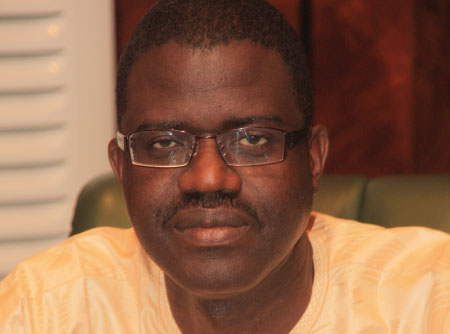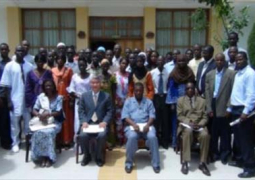
The Government of The Gambia has reacted to the UK Foreign and Commonwealth Office report on human rights released last month, in which The Gambia was included as a case study.
In a statement issued late Thursday night and read on GRTS television, the Government of the Gambia said the United Kingdom Government openly condemned the Gambian people, their religions and their culture in this regard, and leaves little room for collaboration as partners in other important areas of development.
Below is the full text of the Gambia Government reaction:
In view of the publication on 15 April 2013 of the UK Foreign and Commonwealth Office (FCO) report on human rights which included a case study of The Gambia, the Government of The Gambia wishes to place on record its divergence with the claims proffered therein by the British Government weighing negatively on measures taken by our Government in pursuit of peace, stability and national security in our country.
The Government of The Gambia urges the UK Government to look comparatively inwardly and consider the many incidences of decisions and actions taken against the press and those also encroaching on the liberties of individuals and conglomerates which do not serve the common British or common human interests at home and abroad.
The issues raised yet again on media clearly do not take the standard of professionalism and technical prowess of radio and print journalists in The Gambia which are long strides behind the professional, corporate, and technical levels of the industry in the UK. While we recognise the extant international and sub-regional protocols, it is also important to take into consideration the facts and conditions of our cultural and political sovereignty.
The people of the Gambia object to homosexuality and all its tangential considerations on the ground of their culture and religion. A highly religious and God-fearing society such as ours (95 percent of who are Muslim) cannot encourage homosexuality to please any human right. Protecting Gambian society from the scourges of this phenomenon as a way of life has become the chosen duty of Gambians and their Government.
The United Kingdom Government thereby openly condemns the Gambian people, their religions and their culture in this regard and leaves little room for collaboration as partners in other important areas of development. All the issues highlighted in the FCO report on the death penalty, detentions, censure of newspapers and radio stations, the sanctioning of voices intent on social destabilisation are soon remedied by consultation, collaboration and support to practitioners in the development of self-regulatory organisms and improved standards rather than the apparently more desired effect of the all-out blackmailing of the Government of The Gambia while the abundant signs of progress and growth in the conditions of the people are ignored by the media and some others who are supposed to be partners in our development.
The Government of The Gambia desists from any direct response to the statement by the British High Commissioner to The Gambia David J. Morely issued in the wake of the launch of the FCO report. While the provocative, disruptive and undiplomatic design ff the High Commissioner’s attitude is clear, the Government of The Gambia would like to reiterate a long-standing philosophy to work harmoniously with those people and countries that love The Gambia and to leave alone those countries and people who will not work for the good of The Gambia.
These facts being the case, the Government of The Gambia considers it an insult to our sovereignty, dignity, culture and or religion, from an agenda being imposed by foreign interests that will make criminal lords over all law abiding citizens, or turn the Gambia, a Muslim country, into a sinful, abominable and disobedient country by allowing values that are of the greatest threat to human existence. History is full of evidence of European injustice and destruction of human life, land, flora and fauna which has left catastrophic consequences on rapid development and self realisation of our country and people going into the 21st Century.
The evidence leaves many countries in the European Union, especially Britain, without the moral authority to dictate moral standards of rectitude and democracy to any former colony in Africa. It should be abundantly clear by now in the minds of all partners that in every negotiation and in every agreement, the interest of the people of the Gambia, and Africans in general, will come first. The sovereignty of this country will not be compromised and its people will not bow to the inimical values of others even though those were able to make their way by swaying majority and influence into international protocols.




